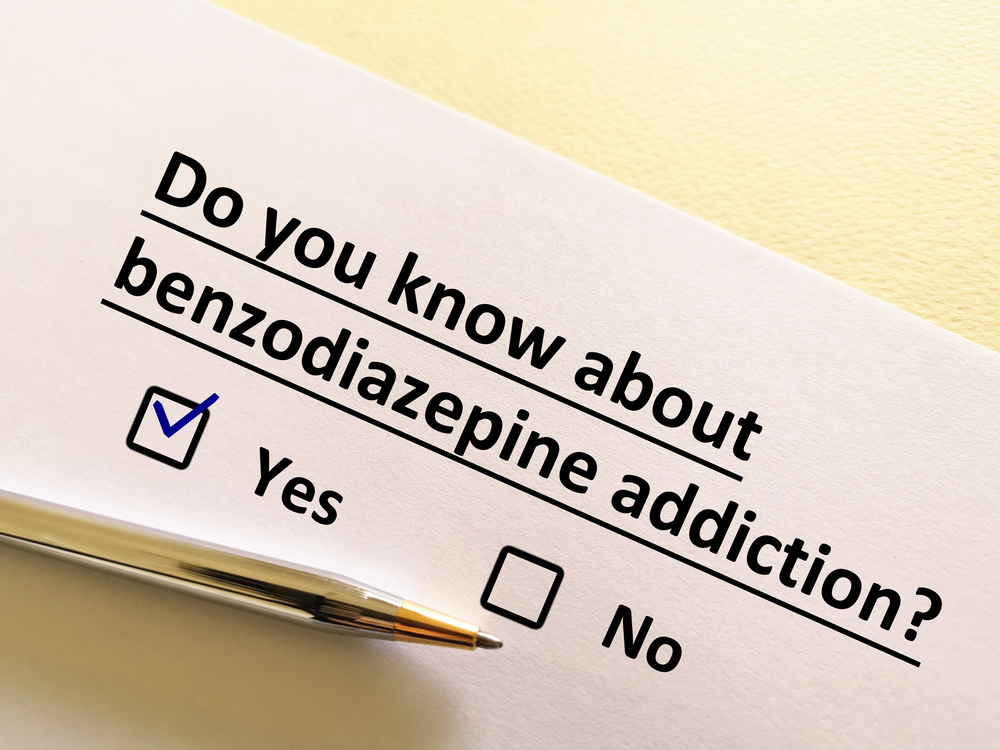Benzodiazepines, also known as benzos, belong to a class of medications known as sedative hypnotics. They are fast-acting, man-made medications that work by affecting one’s neurotransmitters. When used properly, benzodiazepines can be effective in treating a variety of ailments. The U.S. Food and Drug Administration (FDA) has approved benzodiazepines specifically for the treatment of generalized anxiety disorder (GAD), insomnia, social anxiety disorder, seizure disorders, and panic disorders. Benzodiazepines are easily accessible as they are among the most frequently prescribed drugs in the United States.
Benzodiazepines work by interacting with the natural functioning of one’s brain and central nervous system. Medical News Today explains that benzodiazepines “alter the activity of the neurons that trigger stress and anxiety reactions.” When ingested, benzodiazepines affect one’s system by enhancing the effects of the neurotransmitter, known as GABA (gamma-aminobutyric acid). GABA is a neurotransmitter that blocks impulses between nerve cells in one’s brain. Benzodiazepines increase GABA, which in turn reduces brain activity.
Are They Addictive?
Yes, benzodiazepines can be addictive as they are habit-forming, even when prescribed at therapeutic doses. In as little as 30 days, a person can become physically dependent on the medication, which is why they are intended for short-term, sporadic use. Although benzodiazepines are classified by the DEA (United States Drug Enforcement Administration) as Schedule IV Controlled Substance, meaning they are “defined as drugs with a low potential for abuse and low risk of dependence,” benzos can be habit forming and lead to addiction. Long-term use of benzos can lead to tolerance, which means that individuals will require higher doses to achieve the same results, as lower doses will be ineffective. An individual that abuses benzodiazepines (e.g., takes them more frequently than prescribed, takes them in addition to other substance, increases one’s dose without authorization, ingests them in a way different than prescribed, etc.) is at increased risk of addiction. Further, because of the highly addictive nature of benzodiazepines, even individuals who do not abuse benzodiazepines have the propensity to become addicted to them.
For Information and Support
If you are concerned for yourself or a loved one regarding substance abuse and/ or addiction, we recommend reaching out for help as soon as possible. If left untreated, substance abuse can result in long lasting and potentially life-threatening consequences. Keep in mind: you are not alone! There is an entire network of professionals that are available to help and support you and your loved one throughout the recovery process. The earlier you seek support, the sooner your loved one can return to a happy, healthy, and fulfilling life.
Please do not hesitate to reach out with any questions regarding our specific program at Haven House Addiction Treatment and/ or general substance abuse and/ or addiction treatment related information. Our highly trained staff is readily available to discuss how we might best be able to help you and your loved one. We can be reached by phone at 424-258-6792. You are also welcomed to contact anytime us via email at admissions@hhtxc.com.



